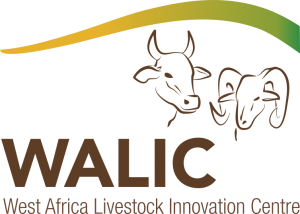
The West Africa Livestock Innovation Centre
WALIC is built on the 30 years legacy and achievements of the former International Trypanotloerance Centre (ITC). Thus WALIC is a metamorphosis of ITC with a new vision and mission. The new name for the centre was born during the consultative meetings, electronic discussions and validation workshop that led to the development and validation of a new 10 year strategic plan (2013-2022).WALIC is established by an Act of parliament of the Gambia government called WALIC Act 2016 which also establishes a governing Council to provide strategic advice and guidance for the operation of the Centre. The 15 member Council comprises of regional representatives mainly from West African member states, institutions, organizations and technical experts.
Membership
- Minister of Agriculture - The Gambia
- Director of AU-IBAR
- Commissioner of the ECOWAS Commission for Agriculture, environment and water resources
- Executive Director of CORAF / WECARD
- ECOWAS Member States: The Gambia, Ghana, Guinea Conakry, Nigeria, Senegal
- Regional Farmer Organizations
- Regional Non-Governmental Organizations
- Four Experts
Vision
The vision of WALIC is a vibrant West African livestock sector, which boosts food security and wealth creation while safeguarding the environment.
Mission
The mission of WALIC is to unlock the potential of West Africa’s ruminant livestock sector through innovative partnerships and knowledge-based solutions that empower stakeholders along value chains.
Principles and Roles
The following principles will guide WALIC’s engagement with partners and stakeholders:
- Innovative partnerships achieved through proactive brokerage and facilitation of multi-stakeholder platforms to address systemic institutional challenges;
- Stakeholder empowerment through the concepts of strength in numbers, information is power; knowledge is strength, and competency matters;
- A balance between private goods and regional and international public goods. The drive to achieve financially sustainable solutions should be tempered by the recognition that the private sector is often weak and that the Centre also has public good objectives, such as ensuring the continuing availability of useful and potentially useful traits in indigenous breeds and brokering appropriate support for poor farmers who have not successfully entered the livestock market economy;
- Environmental sustainability: succeeding today without compromising the resource-base for tomorrow;
- Value chain-centred approach, with deliberate attention to women and youth.
WALIC’s roles will include being a catalyst, facilitator, partnership and knowledge broker; an advocate for more enabling policies and institutions; a resource mobilizer and coordinator. The implementation of many WALIC programmes, projects and activities will be undertaken by carefully selected partners from the member countries, the private sector and civil society, including public-private partnerships.
